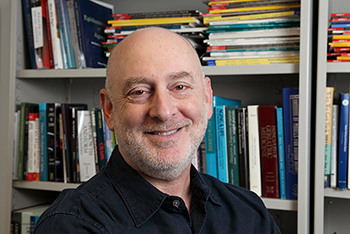When considering presidential candidates, age is just a number
With more people living longer and healthier lives than ever before, a new white paper published by the American Federation for Aging Research shows there is no such thing as being too old to be president.
Author S. Jay Olshansky, professor of epidemiology at the University of Illinois at Chicago School of Public Health, estimated the longevity and survival probabilities of candidates seeking the White House. He found that age is not a relevant factor in judging the fitness of presidential candidates to hold the nation’s highest office.
“Age is just a number,” said Olshansky, who is also a board member of the American Federation for Aging Research, or AFAR. “This research for the first time provides science-based calculations that show that the age of a candidate should not be considered at all.”
Olshansky and his colleagues used data from national vital statistics to estimate lifespan, healthspan (years of healthy living), disabled lifespan, and four- and eight-year survival probabilities for U.S. citizens with attributes matching those of all 27 current candidates for the next two election cycles.
The study’s estimates, which Olshansky says are intentionally conservative, suggest that nearly all of the candidates meet the criteria to live in health, and without disability, not only through a first term but also through a second term.
“Nevertheless, the estimates provided here, favorable or unfavorable, should not be interpreted as destiny for any of the candidates,” Olshansky wrote.
Four of the leading contenders in both parties are in their 70s: U.S. senators Joe Biden (76), Bernie Sanders (77) and Elizabeth Warren (70) on the Democratic side, and Republican incumbent Donald Trump (73), who became the oldest American elected president at age 70 in 2016. Overall, seven of the 27 candidates currently in the race for president would be aged 70 and older on inauguration day in January 2021, increasing the odds that the oldest person ever elected president could be sworn into office that day.
This fact has given rise to considerable discussion and media attention regarding the role age plays in deciding whether a candidate is fit to be president. Almost four in 10 people surveyed in a June 2019 Economist/YouGov Poll said they considered anyone in their 70s “too old to be president.”
The scientific answer, according to the study, is that “chronological age itself should not be used as a sole disqualifier to run for or become president.”
AFAR Executive Director Stephanie Lederman said the number of candidates in their 70s is in part a result of “the revolution in healthy aging that has occurred over the past century. Life expectancy has increased by an astounding 30 years. More of us are living healthier and longer than ever before. And biomedical research continues to open new paths for all of us to extend not only how long we live, but how many of those years we live independently, in good health, and contributing in significant ways to society.”
The study also took note of a suggestion by Dr. David Scheiner, former President Obama’s personal physician, calling on presidential candidates to make their medical records public.
“The voting public and legal scholars need to weigh in on whether or not medical records should be required to be disclosed by candidates or a sitting president,” Olshansky said.
Lederman said, “The question, Dr. Olshansky’s study reminds us, shouldn’t be, ‘How old is too old?’ It should be, ‘How healthy is the candidate, regardless of their age?'”

